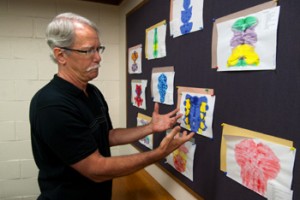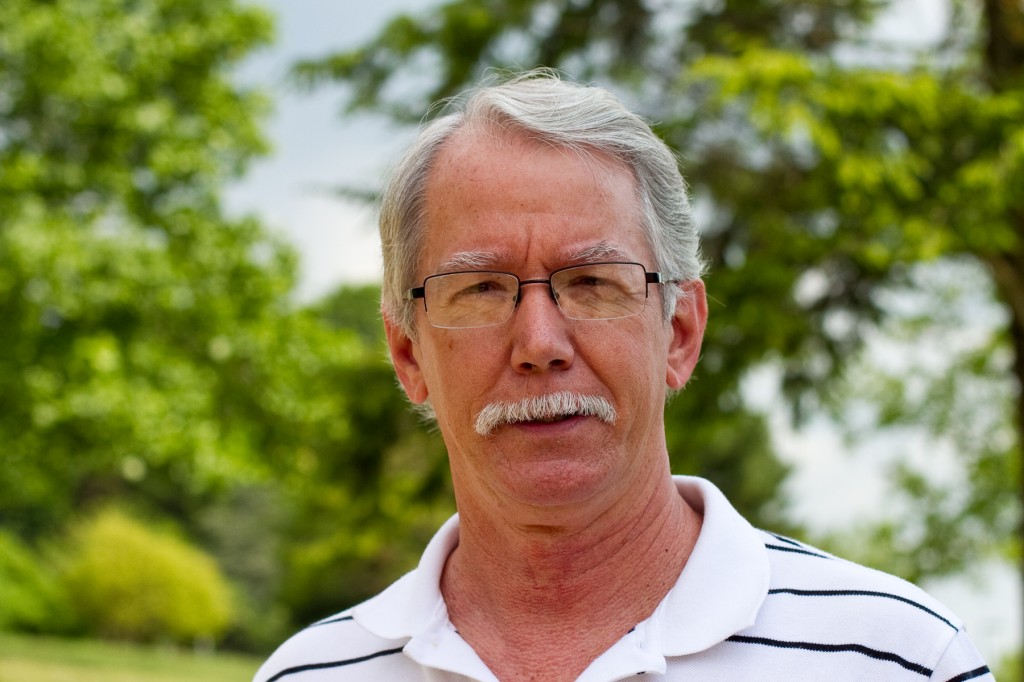HARRISONBURG – Fred Kniss remembers well the Eastern Mennonite University professor who taught him psychology in the mid-1970s.
But it probably doesn’t hurt that Kniss, 54, who’s serving as the acting president during President Loren Swartzendruber’s three-month sabbatical, still sees the man occasionally. After all, professor Galen R. Lehman has continued his career there for more than three decades.

Lehman, 63, is the longest-serving professor at EMU, beginning his career with the university in 1973 in the psychology department. When he first started teaching, he often found his students were very close to his own
age.
Now he’s finding that many of them are children of his former pupils.
“If I ever find someone who says I taught their grandparent, I’ll know it’s time to quit,” he says with a heartfelt laugh.
While the university must constantly recruit new professors who are on the cutting-edge of education practices and theories, Kniss says having long-term professors such as Lehman around provides other employees with a sense of context and stability.
“A problem or an issue comes up and people who haven’t been around think it’s new,” said Kniss. “[But] people who have been around say, ‘Oh yeah, we dealt with this back in 1970.’ Or they say, ‘Here are the roots of the issue.’ ”
Lehman, who is now the psychology department chairman, has served up his share of new ideas while at the university. He was among the first to integrate computers into the classroom, using an Apple II computer to administer tests to students in 1974.
He also led an initiative to turn a dirt-floor basement in the Suter Science Center into instructional space, creating an area where upper-class psychology students could spend time with underclassmen.
Reconciling Science, Religion
Lehman received his bachelor’s degree in psychology from EMU in 1973. He earned his master’s degree in general psychology from then-Hollins College, and he earned his doctorate from Virginia Tech in applied
experimental psychology.
His expertise is in working with groups to solve practical problems or prevent unsafe behaviors, particularly in the workplace. While many employers might say it is good enough to just have people who want to be safe at work, Lehman argues that, “If you can work on the behavior … that’s what will actually increase the safety measures in a manufacturing plant, rather than simply working with the attitudes.”
Lehman is also very active with the Virginia Mennonite Mission Board. He makes several trips yearly to Jamaica to assist with the logistics of missions there. He splits his time between EMU and working as the Caribbean regional director for the board.
Some might see a contradiction in his interest in science and his dedication to his faith, but not Lehman. For him, the two work together.
“I can use my science and knowledge of human behavior … to motivate people,” said Lehman, who was raised in the Mennonite church. “One of the things I find very fulfilling about my work is that I feel each area -[science and religion] – complements the other.”
The Maryland native became interested in psychology after living in Jamaica for a few years in the late 1960s where he did missions work as part of Alternative Service during the Vietnam War. The experience exposed him to the behavioral problems some disabled children in the Caribbean nation faced, such as learning difficulties or acting out and other disciplinary issues.
“I asked myself the question ‘How could I prepare my life in a way that could address those problems?’ ” he said.
Now he serves on the board for a school for deaf children in Jamaica, using his background in psychology to help teachers learn how to better interact with students with disabilities.
A Mentor’s Suggestion
Lehman says he hadn’t considered teaching psychology until a professor asked him during his senior year if he had thought about teaching the subject.
“It was really that affirmation from a mentor of mine that sort of planted in me the dream of teaching,” he said.
And so it was that Lehman’s dream blossomed into a lifelong career, allowing him to leave his mark on a host of students.
Kniss said he remembers Lehman’s passion for his chosen field, which Kniss described as contagious – inspiring, even.
“The interest in the material, it was infectious,” said Kniss. “Even though psychology wasn’t my field, the fact that he was so interested in it – you couldn’t help but get interested in it. It’s more that kind of flavor or spirit of the classroom that I remember.”
Farm Life
Lehman’s interests extend beyond the science of the mind. He enjoys architecture (he designed and built his own home, as well as several others) and the visual arts, such as photography and videography.
He lives on a farm, where he raises cattle and bales hay.
“My life has all that variety that helps make it fulfilling to me,” he says.
And it is that diversity that makes Lehman a good professor, Kniss says.
“He has a lot of different interests and a lot of energy and curiosity. And I think that’s always a good thing to have in a university – people who ask questions outside of their disciplinary box,” he said.
————————
Reprinted by permission from the June 18, 2011 edition of the Harrisonburg Daily News-Record.
Contact Joshua Brown at 574-6218 or jbrown@dnronline.com
